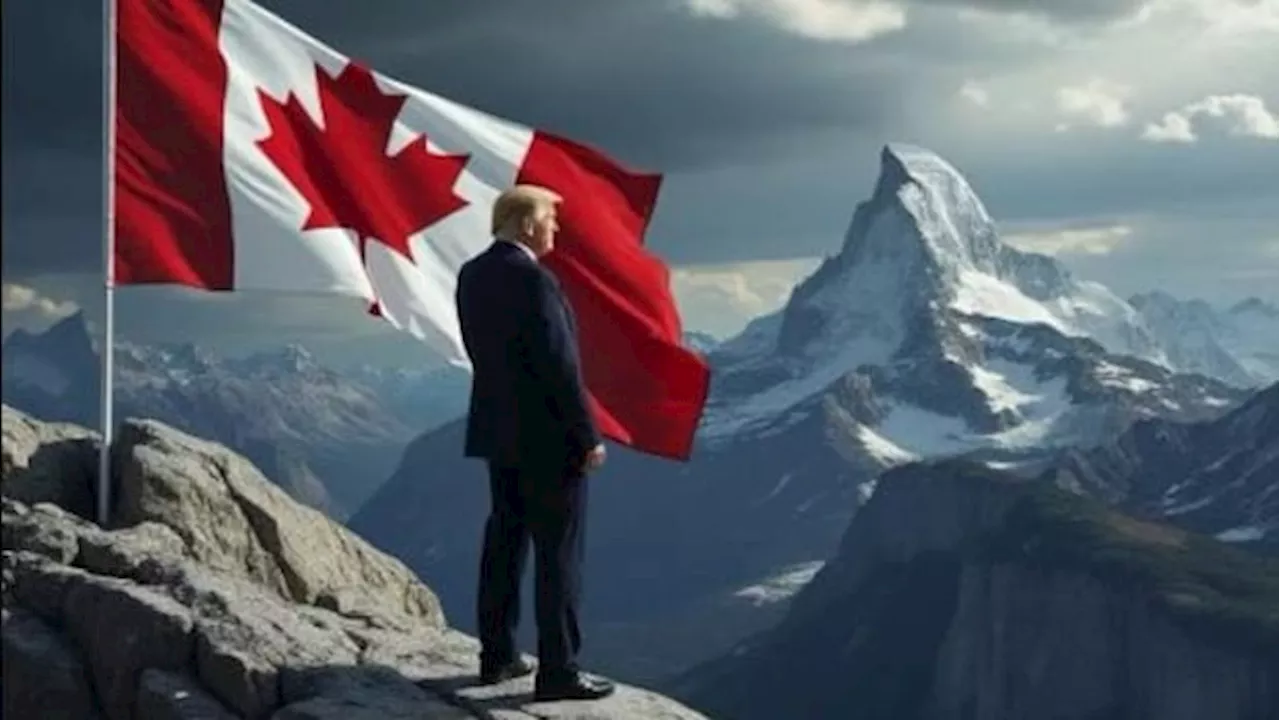Donald Trump's recent jokes about Canada becoming the 51st state of the US have sparked a conversation about Canadian identity and how the country distinguishes itself from its southern neighbour. This text explores Canadians' views on their relationship with the US, highlighting key differences in political and social perspectives. It also examines the potential impact of Trump's rhetoric on Canadian patriotism and nationalism.
The return of Donald Trump — and his jokes about the 51st state — will likely provide new opportunities for Canada to decide how much and how loudly it wants to differentiate itself from its neighbour. In the process, could Trump also end up recharging Canadian patriotism or nationalism? Trump has made a threat, involving tariffs. He's made jokes, including posting this AI-produced image on social media.
But he hasn't actually been specific on policy; it's unclear whether he wants minor, or major, changes from Canada. (realDonaldTrump/Truth Social)'To those fleeing persecution, terror & war, Canadians will welcome you, regardless of your faith,' he wrote. 'Diversity is our strength #WelcomeToCanada.' Initially, when Trudeau made this statement in the midst of a large influx of refugees, the conventional wisdom became that the prime minister's message was a gaffe. He had either invited the influx of people or the challenge of dealing with that wave of newcomers had shown his tweet to be simplistic virtue-signalling. But haggling over the tactical value of the message risks missing the basic principle that was being conveyed: Canada does not discriminate against those attempting to immigrate to this country on the basis of religion. This episode, along with Trump's recent comments, will likely provide new opportunities for Canada to decide how much and how loudly it wants to differentiate itself from its neighbour. In the process, could Trump also end up recharging Canadian patriotism or nationalism? Trudeau was predictably asked about Trump's 51st state comments during his two recent interviews with American media outlets. Unsurprisingly, Trudeau deemed the idea a non-starter. Prime Minister Justin Trudeau pushed back against president-elect Donald Trump’s threats in a CNN interview, saying if he does bring in tariffs, Canada would be forced to retaliate. Opposition leader Pierre Poilievre called on the government to be more forceful with the U.S.. 'One of the ways we define ourselves most easily is, 'well, we're not American.' There's such a depth of pride that that's not really an issue.' It would arguably be a problem if not being American was the entire basis for Canada's self-image. But it's not a terrible place to start — and has been, to some extent or another, As much as Canadians might understand that they live in a distinct and sovereign country, it's worth highlighting some of the differences. Consider, for instance, Canadians' views of the recent U.S. presidential election. Support for Trump in Canada has increased over the last four years, but Environics that 60 per cent of Canadians still supported Kamala Harris, the Democratic candidate, compared to 21 per cent for Trump. (If Canada was a state it would be the safest Democratic state by a wide margin, surpassing Vermont, which Harris won by 32 points.) Seventy-seven per cent of Canadians strongly or somewhat agreed the government should act to reduce the income disparity between the rich and poor, compared to 58 per cent of Americans. Eighty-two per cent of Canadians strongly or somewhat agreed that every woman who wants an abortion should be able to have one, compared to 62 per cent of Americans. Sixty-one per cent of Canadians agreed it should be illegal for civilians to own handguns — just 29 per cent of Americans agreed. At Issue this week: The prime minister goes on American TV to push back on Donald Trump’s intensifying threats against Canada. Liberals jockey to take Justin Trudeau’s spot as leader. And growing concerns about foreign election interference. Whatever Trump's fondness for annexation memes, a vanishingly small number of Canadians are interested in joining the United States. In 2022, Environics that 83 per cent of Canadians strongly disagreed with the idea and another seven per cent somewhat disagreed. A new poll from the Angus Reid Institute, conducted earlier this month, similarly That's perhaps unsurprising if you consider some of Environics's other findings. Eighty-three per cent of Canadians had a favourable opinion of the United States in 1983, but that had fallen to when Canadians were asked in 2021 to compare the two countries, large majorities of Canadians thought their country did better when it came to health care, quality of life, education, social security, government, individual rights and both racial and gender equality. (The U.S. won when it came to productivity and technology.) Blame for that decline is sometimes placed on Justin Trudeau — the theory being that the prime minister has spent too much time dwelling on Canada's faults and not enough effort toward enthusing about Canada's successes. But that narrative is complicated by some of the available data. According to Environics, the most significant drop in pride has occurred among Conservative voters, while the level of pride among Liberal voters has been consistent
CANADA DONALD TRUMP UNITED STATES NATIONAL IDENTITY POLITICS PATRIOTISM NATIONALISM FOREIGN RELATIONS
Canada Latest News, Canada Headlines
Similar News:You can also read news stories similar to this one that we have collected from other news sources.
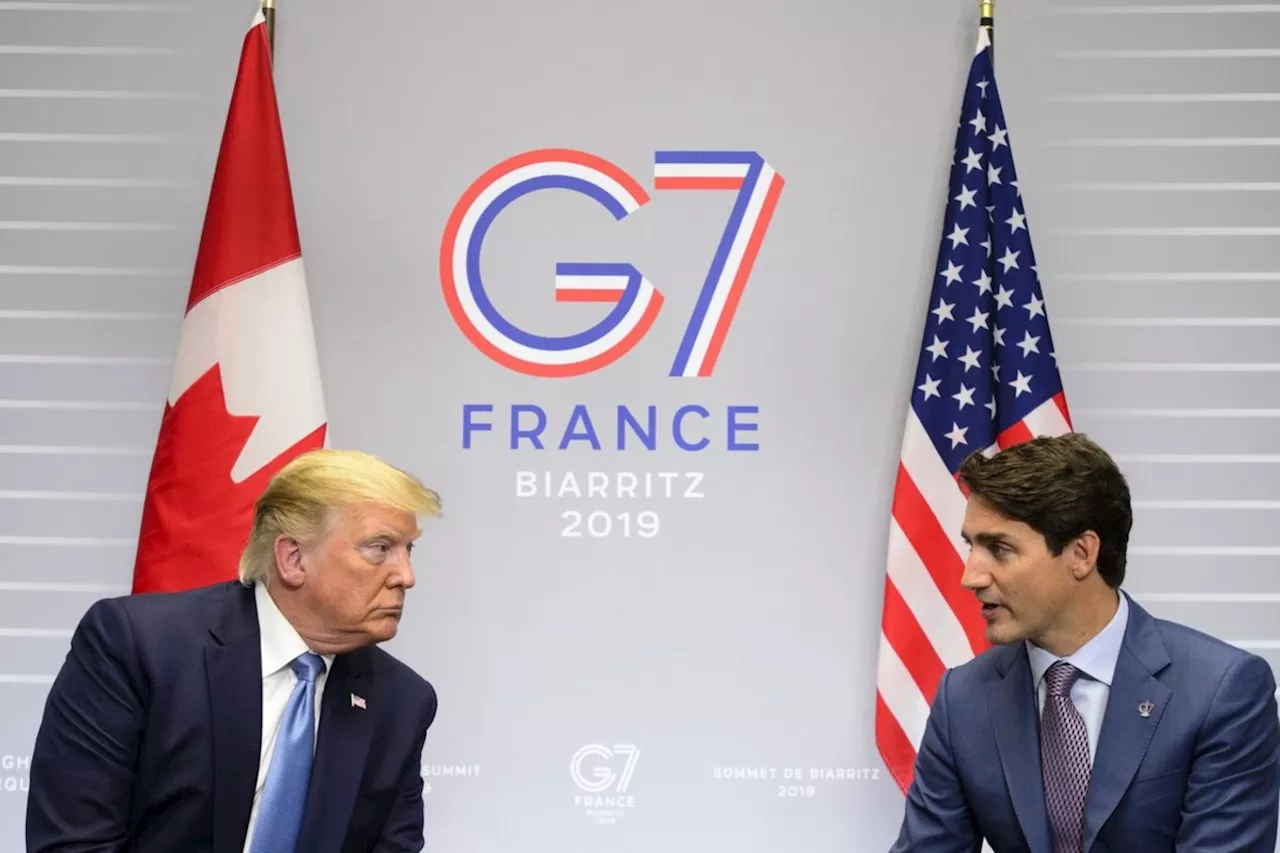 Trump Claims Trudeau Resigned Due to Trade Deficits, Says Canadians Want 51st StatePresident-elect Donald Trump attributes Canadian Prime Minister Justin Trudeau's resignation to the pressure of trade imbalances and suggests Canadians desire to become the 51st state of the US.
Trump Claims Trudeau Resigned Due to Trade Deficits, Says Canadians Want 51st StatePresident-elect Donald Trump attributes Canadian Prime Minister Justin Trudeau's resignation to the pressure of trade imbalances and suggests Canadians desire to become the 51st state of the US.
Read more »
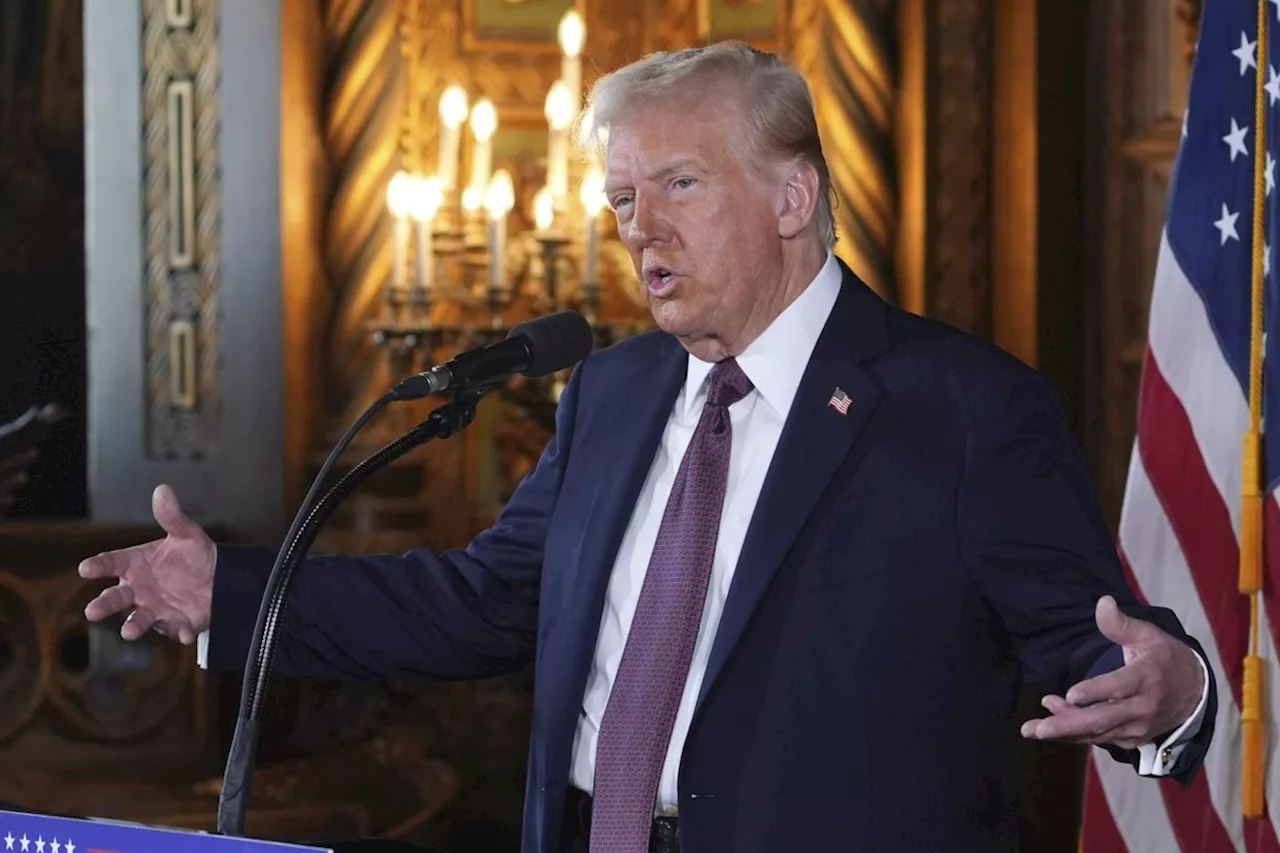 Canadians React to Trump's '51st State' RemarkThe Canadian Press surveyed Canadians from coast to coast about their thoughts on Donald Trump's suggestion to make Canada the 51st state of the United States. Many expressed concern and frustration over the remark, while others dismissed it as empty posturing.
Canadians React to Trump's '51st State' RemarkThe Canadian Press surveyed Canadians from coast to coast about their thoughts on Donald Trump's suggestion to make Canada the 51st state of the United States. Many expressed concern and frustration over the remark, while others dismissed it as empty posturing.
Read more »
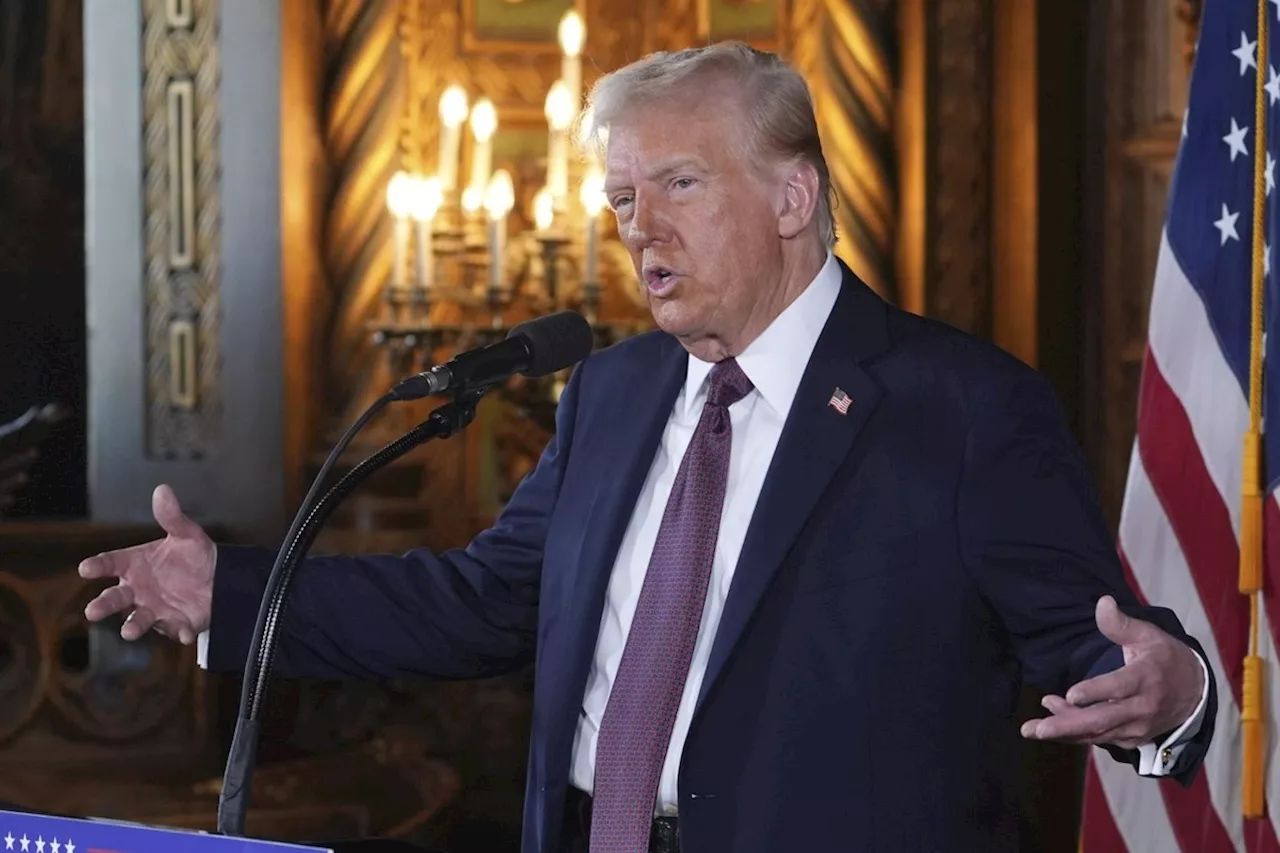 Canadians React to Trump's '51st State' IdeaThe Canadian Press surveyed Canadians from Halifax to Vancouver about Donald Trump's suggestion to make Canada the 51st state using 'economic force'. Canadians expressed a range of emotions, from amusement to concern, highlighting the seriousness of the issue and emphasizing Canada's sovereignty.
Canadians React to Trump's '51st State' IdeaThe Canadian Press surveyed Canadians from Halifax to Vancouver about Donald Trump's suggestion to make Canada the 51st state using 'economic force'. Canadians expressed a range of emotions, from amusement to concern, highlighting the seriousness of the issue and emphasizing Canada's sovereignty.
Read more »
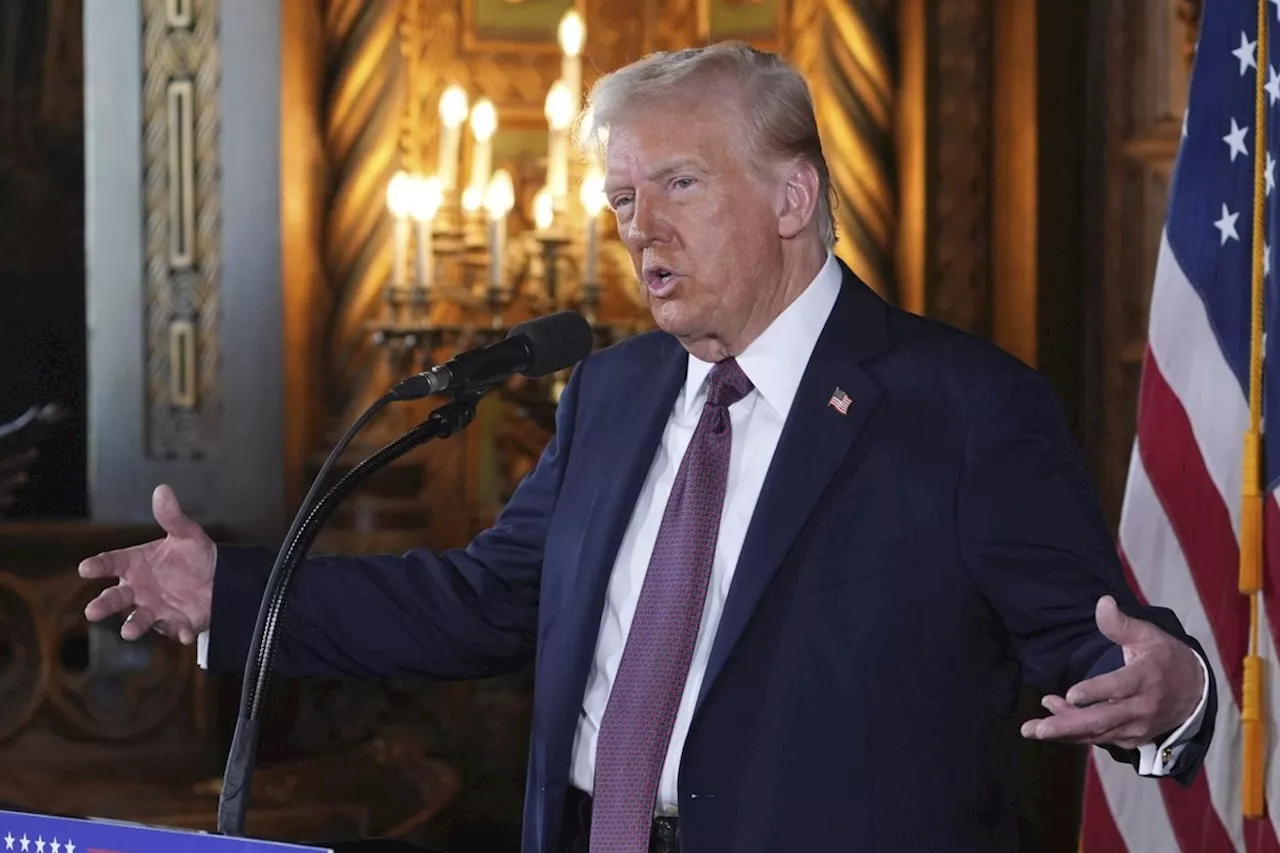 Canadians React to Trump's '51st State' CommentDonald Trump's suggestion to make Canada the 51st state has sparked mixed reactions among Canadians.
Canadians React to Trump's '51st State' CommentDonald Trump's suggestion to make Canada the 51st state has sparked mixed reactions among Canadians.
Read more »
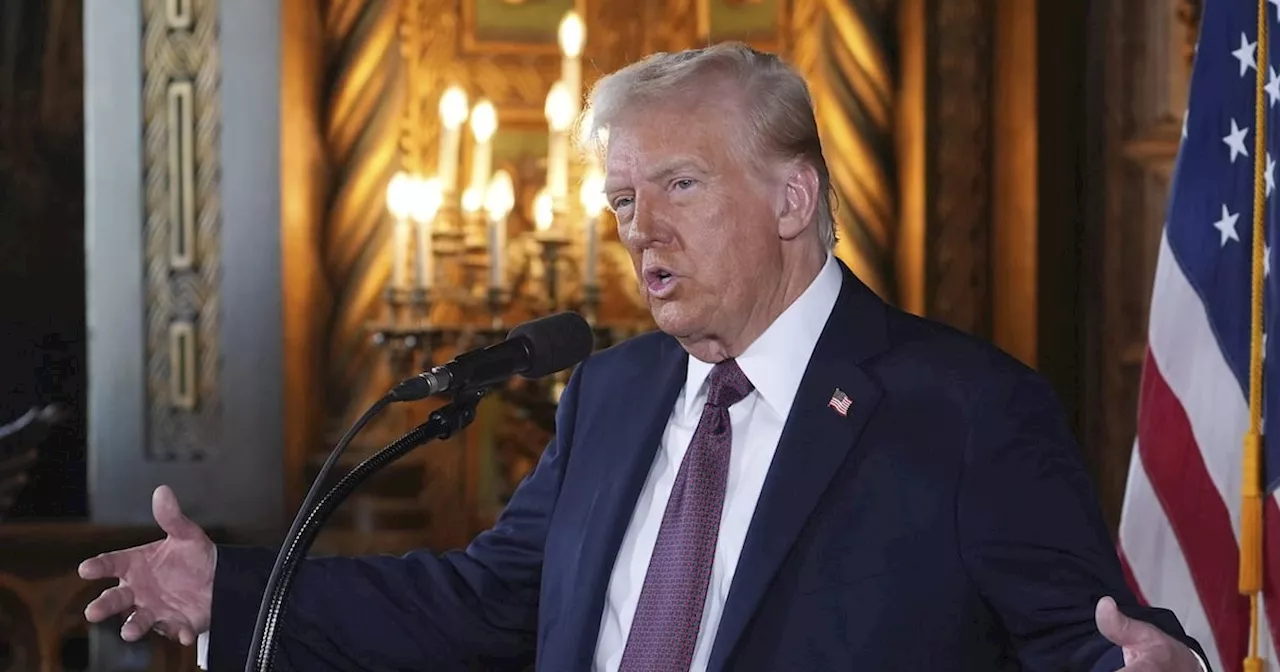 Canadians React to Trump's Idea of Making Canada the 51st StateCanadians express mixed reactions to Donald Trump's suggestion of annexing Canada as the 51st state using economic pressure.
Canadians React to Trump's Idea of Making Canada the 51st StateCanadians express mixed reactions to Donald Trump's suggestion of annexing Canada as the 51st state using economic pressure.
Read more »
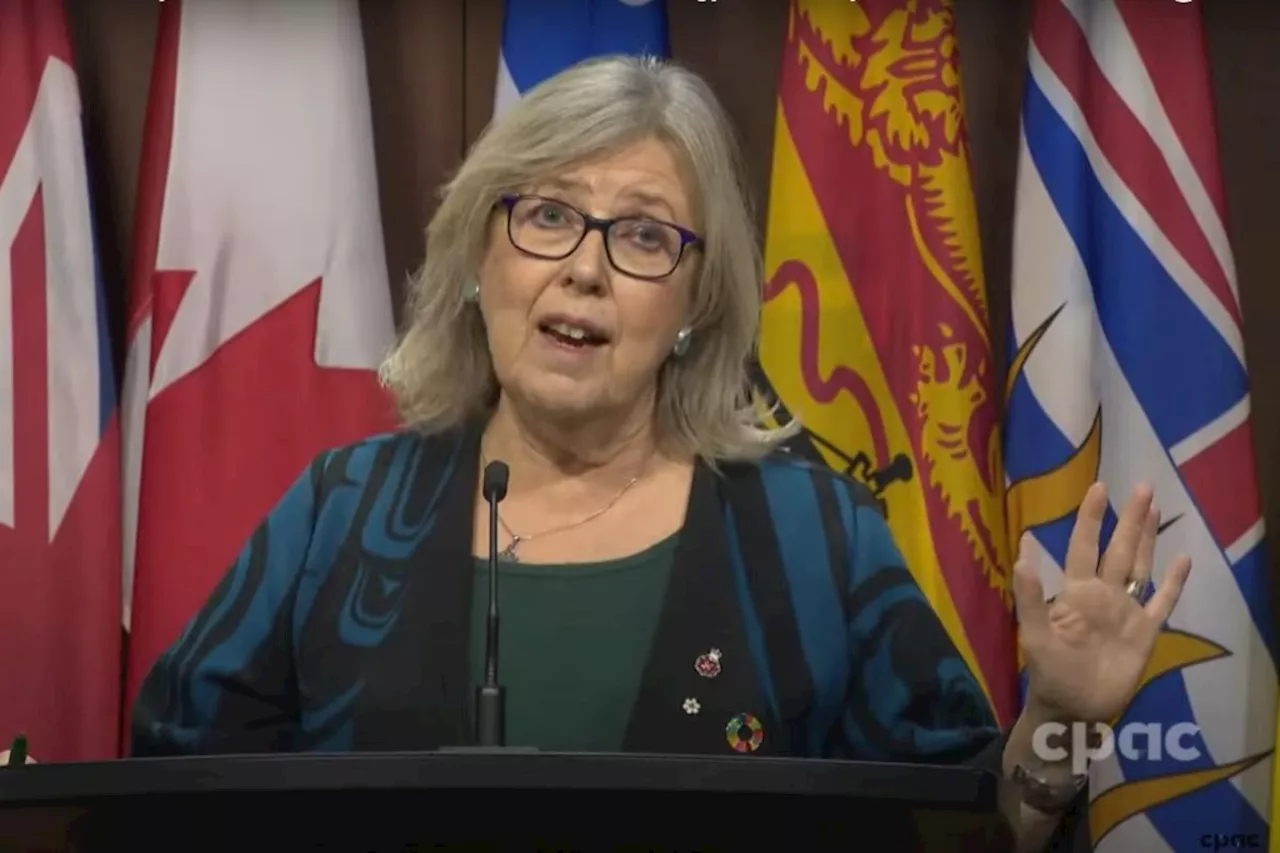 Canadian Green Party Leader Elizabeth May Responds to Trump's '51st State' CommentGreen Party leader Elizabeth May criticized U.S. President-elect Donald Trump's suggestion that Canada should become the 51st state, asserting Canada's independence and contrasting the Canadian political system with that of the United States.
Canadian Green Party Leader Elizabeth May Responds to Trump's '51st State' CommentGreen Party leader Elizabeth May criticized U.S. President-elect Donald Trump's suggestion that Canada should become the 51st state, asserting Canada's independence and contrasting the Canadian political system with that of the United States.
Read more »
